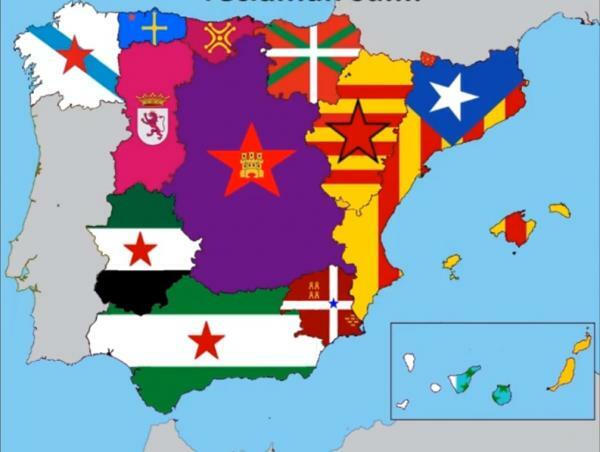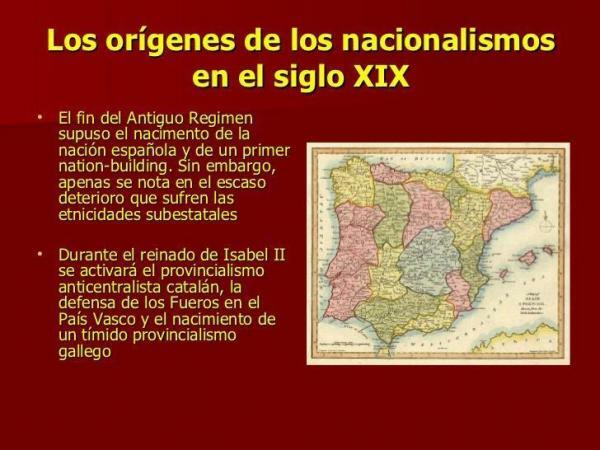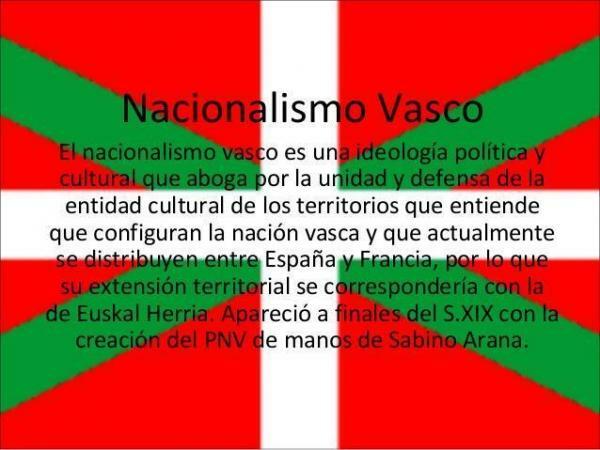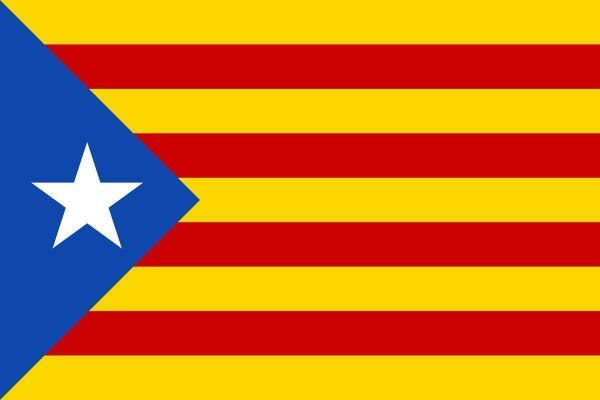Nationalisms in 19th century Spain

Image: The current "Nabar-Herri" - blogger
The Spanish 19th century, as we have mentioned in other lessons, was framed in a series of ups and downs both political, social and economic, elements that clearly revealed the instability of the country. In this lesson from a TEACHER we will give you a summary of nationalisms in Spain in the 19th century, which were a series of movements to try to obtain commercial and tax advantages over other regions of the country.
Index
- Spanish nationalism
- Regionalist nationalisms
- Basque nationalism
- Catalan nationalism
- Galician and Andalusian nationalism
Spanish nationalism.
Undoubtedly, it was the same government that used this word in 1812, when the Constitution of Cádiz "La Pepa".
In this text, the word "nation" was used to name the set of peninsular lands and overseas, being therefore members likewise both the members of a hemisphere and those of the other.
From there also arose three very important points that defined Spanish nationalism:
- The result of the Spanish nation is the fruit of history and it is an inseparable political unit.
- Both the Crown, territory and religion are the main elements of this.
- The centralism it will be another of the backbone elements, since it is the only way to keep the nation together.

Image: Slideshare
Regionalist nationalisms.
Within the summary of nationalisms in Spain in the S XIX, we must know that during the S XIX they will appear in the most modernized regions of Spain, as they were Basque Country and Catalonia, a series of nationalist movements, a fact that was given due to the malaise of the country:
- Weakness of a central nationalism: since there were rivalries to establish a system of government (monarchy or republic).
- Inequality between the various territories.
- The existence of a cultural and linguistic diversity within one's own country.
What these movements will have in common is the rejection of the arrival in their regions of Spaniards who were looking for a improvement in their living conditions, because it was in those parts of the country where there was the largest economy and industry.
In this way, they warned that, if people from other regions of Spain were allowed in, society would become Spanish and the signs of the local societies would be lost. Similarly, having a stronger bourgeoisieThey were looking for commercial advantages in the face of a state in decline.
Basque nationalism.
Continuing with our summary of nationalisms in Spain in the 19th century, we must know that, in the year In 1841, the kingdom of Navarre became one more region within Spain, losing a series of privileges.
Similarly, in 1876, after the end of the carlist wars, abolished the privileges of the Basque Country. In this way, these two areas began a series of political movements to defend the return of their privileges.
In 1895 the Basque Nationalist Party (PNV) that supported the independence of the old Basque area (which included the current Basque Country, the French Pyrenees, Navarra, a part of Cantabria and La Rioja).

Image: Slideshare
Catalan nationalism.
We now focus on the region of Catalonia. This region since the end of the war of succession, had left this without jurisdiction for having supported the Habsburg side. From that moment, a nationalism that advocates:
- Regain lost privileges.
- Own civil law.
All this, together with a culture and language different from Spanish (according to the creators of nationalism) made them different. A distorted history was used to defend its own identity, since they warned that the historical value of Catalonia had been very important (this being true to a great extent) although they used the terms that belonged to the Crown of Aragon, within which were the Counties Catalan.
The historical evolution of the country since mid-19th century It led to the appearance of said nationalism, which was gaining strength, reaching our days. This always defended the creation of an independent republic of Spain.

Galician and Andalusian nationalism.
To end with our summary of nationalisms in Spain in the 19th centuryWe will mention two other movements that occurred in the mid-19th century, such as:
Nationalism gallego
This advocated the defense of Galician culture, in addition to the right to a more autonomous government (some extremist ideologies even mentioned the word independence).
Nationalism aAndalusian
This case is more typical of the S XX, although it has its roots in the mid-19th century, when the region of Andalusia suffered a strong abandonment by the government, which is why for which there were many people who had to go to other parts of Spain to find improvements in the quality of life.
These two movements will have the following features:
- 1840-1885 we will find a process of provincialism.
- 1885-1916 we will go on to find a strong regionalism.
- 1916-1936, nationalism will appear as such within these two regions.
If you want to read more articles similar to Nationalisms in 19th century Spain - Summary, we recommend that you enter our category of Story.



